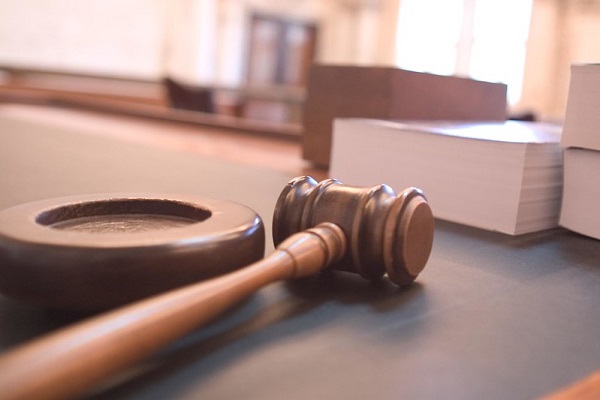
–>
July 13, 2022
Title IX is the federal law that aims to eliminate sex discrimination in schools. Title IX is the legal basis cited by college students to claim they were subject to sexual assault or sexual harassment. In 2011, the Obama Administration issued its infamous Dear Colleague Letter, giving rise to the notorious campus kangaroo courts that trampled on due process rights and the presumption of innocence.
‘); googletag.cmd.push(function () { googletag.display(‘div-gpt-ad-1609268089992-0’); }); }
Before long, male students were being expelled in droves, often based on the flimsiest of evidence. Courageously, many of them fought back, suing their former schools for lack of fundamental fairness. Of the lawsuits that have been decided, a majority have been in favor of the accused student.
My organization, SAVE, has conducted an analysis of 175 of these judicial decisions, identifying the findings and legal basis for each opinion. Our “Analysis of Judicial Decisions Affirming the 2020 Title IX Regulation” reveals an abiding concern among the judges that schools implement fair procedures so the truth is revealed and the correct verdict is reached.
For example, 39 of the legal decisions highlighted the school’s failure to notify the accused student of the exact nature of the allegation. Lacking detailed and timely notice, the accused is handicapped in locating witnesses and preparing a robust defense.
‘); googletag.cmd.push(function () { googletag.display(‘div-gpt-ad-1609270365559-0’); }); }
In response to this wave of lawsuits, the Trump administration enacted a new Title IX due process regulation. But newly elected Joe Biden was aghast at the notion of instilling fairness in campus procedures. So on June 23, his Department of Education released a new draft policy.
Three of the most important due process protections are impartial investigations, the right to review evidence, and hearings that allow for cross-examination. No surprise, the Biden proposal targets all three of these essential procedures.
Impartial investigations: The Biden proposal allows the same person to serve as investigator and decision-maker, an obvious conflict of interest. This, despite the fact that 49 judicial decisions found biased investigations to be problematic. In one milestone case, Judge Molly Fitzgerald of the Appellate Division of New York ruled, “An impartial investigation performed by bias-free investigators is the substantive foundation” of a legal proceeding.
Review of Evidence: The Biden rule proposes that the parties would have access only to a “description” of the evidence — not the actual evidence — which could be provided either “orally or in writing.” But 27 judicial decisions ridiculed this Soviet show trial approach. In Doe v. Purdue University, for example, the court held that “withholding the evidence on which it relied in adjudicating his guilt was itself sufficient to render the process fundamentally unfair.”
Hearings with Cross-Examination: The Biden rule would render hearings and cross-examination optional, allowing adjudicators to ask their questions “during individual meetings with the parties.” But judges have made mincemeat of this kangaroo court approach. In Doe v. University of Sciences, the judge opined that fairness includes “the ability to participate in a live, adversarial hearing during which the accused may present evidence and a defense.”
If anyone still believes Biden’s rhetoric about ending “all” discrimination against students, they should look at his proposed “free pass” provision: schools must “not discipline a party, witness, or others participating in a recipient’s grievance procedures for making a false statement.”
‘); googletag.cmd.push(function () { googletag.display(‘div-gpt-ad-1609268078422-0’); }); } if (publir_show_ads) { document.write(“
Read those words again, because they represent an open invitation to every false accuser. They contravene the very purpose of any legal proceeding, negate the notion of justice, and subvert the quest for truth.
In Harris v. Saint Joseph University, for example, the judge chided the institution for its “reckless indifference to the truth.” In Doe v. University of Cincinnati, the judge explained the “value of cross-examination to the discovery of truth cannot be overemphasized.” In Doe v. University of Southern Mississippi, the justice emphasized the need to “flesh out inconsistencies in a search for the truth.”
Indeed, the hallowed “search for the truth” is the theme that connects all 175 judicial decisions that have been handed down against colleges over the past decade.
If you doubt that women can embellish upon or completely lie about their sexual liaisons, consider the recent case of Erin Wingo. One night, the Clemson University student seduced a male student by whispering, “If you don’t kiss me now, you won’t have sex with me tonight.” Fearing that her long-time boyfriend would learn of her infidelity, she later accused her paramour of rape. When a text message later revealed the truth of the tryst, the surprised jury awarded the falsely accused man $5.3 million in damages.
American judges are growing increasingly restive with the due process shortcuts that plague many institutions of higher education. The Department of Education should reconsider its arrogant view that it possesses a more profound understanding of campus due process than the multitude of black-robed jurists.
Edward E. Bartlett is the president of SAVE, a non-profit organization working for fairness and due process in schools.

<!– if(page_width_onload <= 479) { document.write("
“); googletag.cmd.push(function() { googletag.display(‘div-gpt-ad-1345489840937-4’); }); } –> If you experience technical problems, please write to [email protected]
FOLLOW US ON
<!–
–>
<!– _qoptions={ qacct:”p-9bKF-NgTuSFM6″ }; ![]() –> <!—-> <!– var addthis_share = { email_template: “new_template” } –>
–> <!—-> <!– var addthis_share = { email_template: “new_template” } –>






